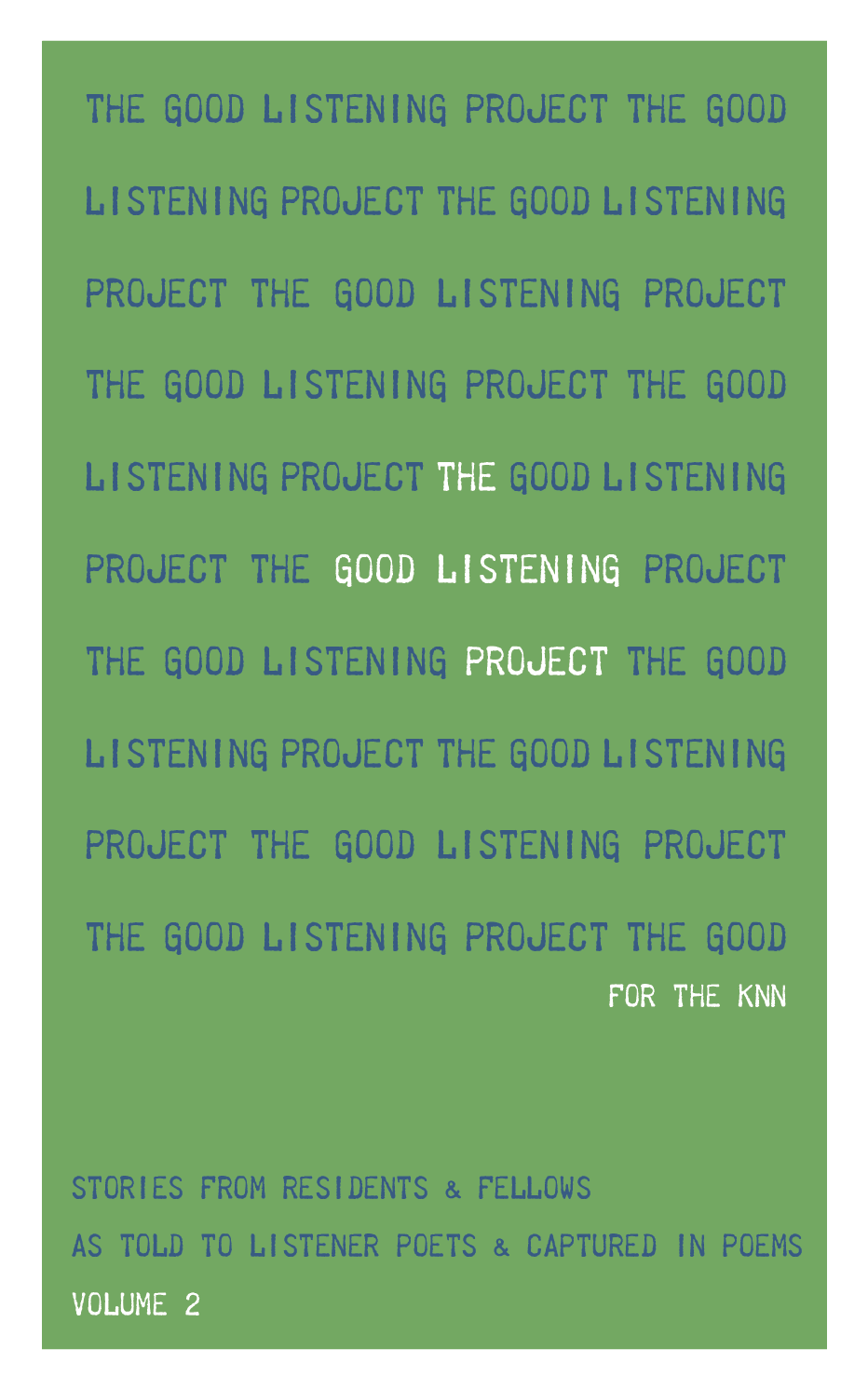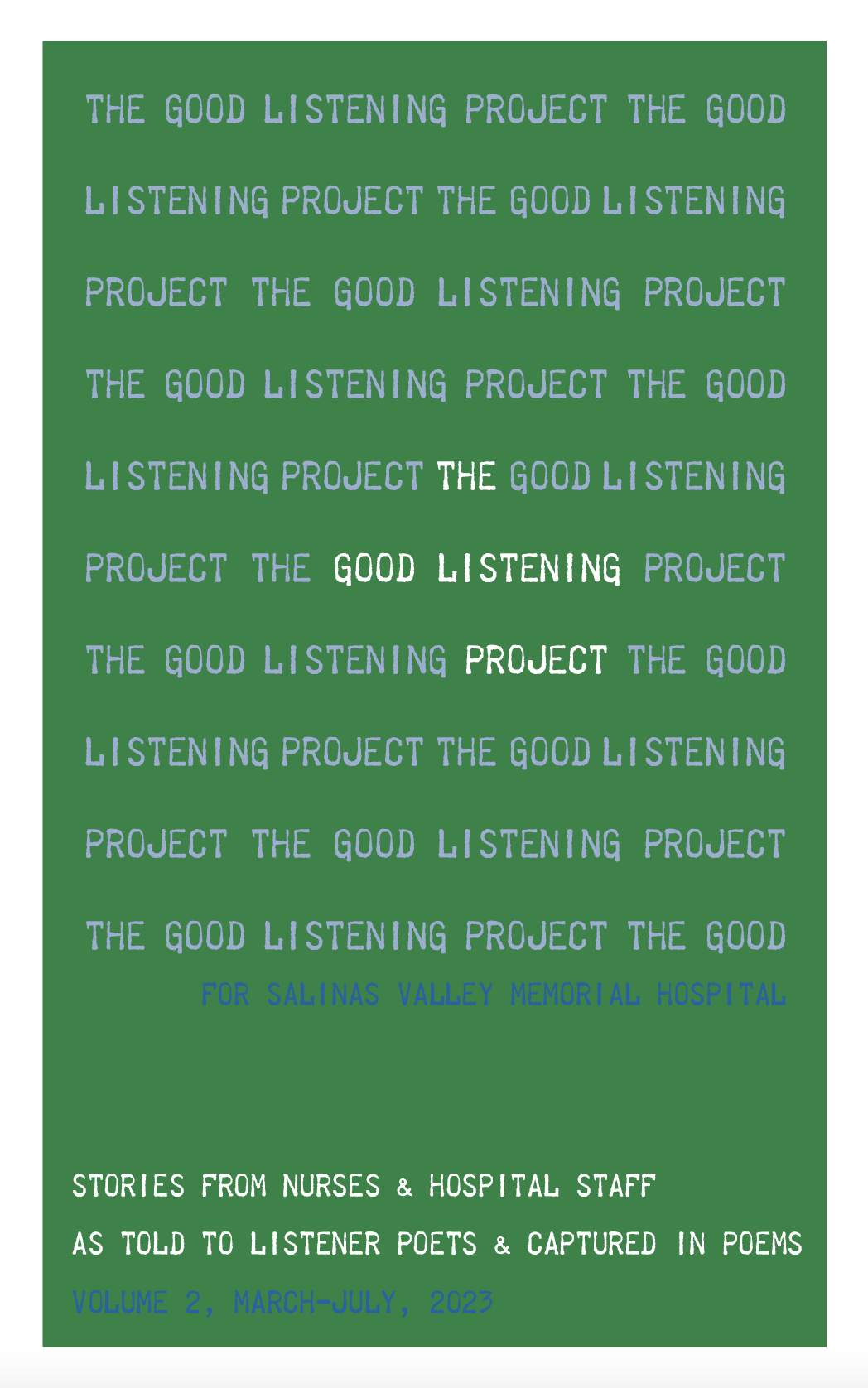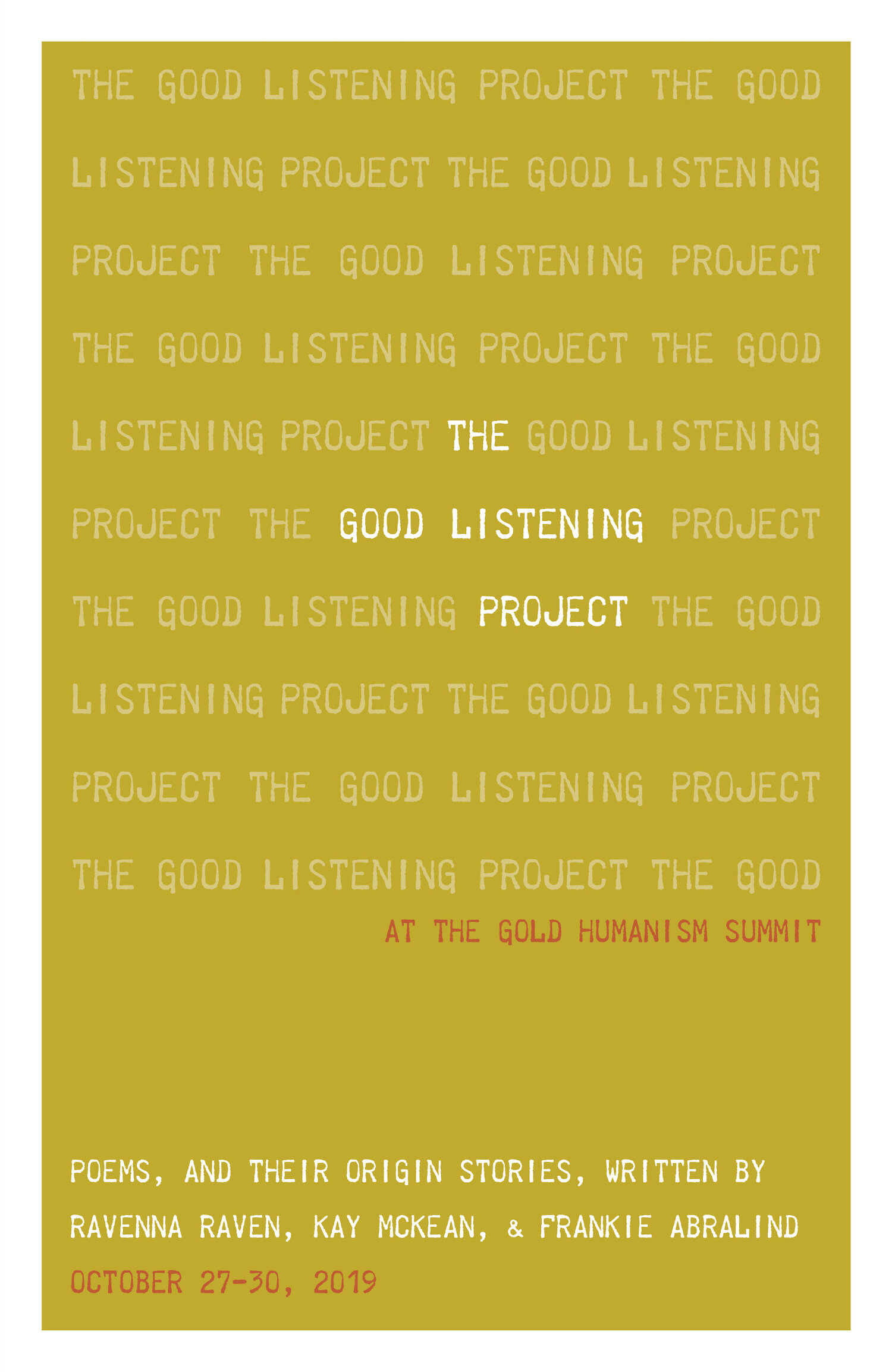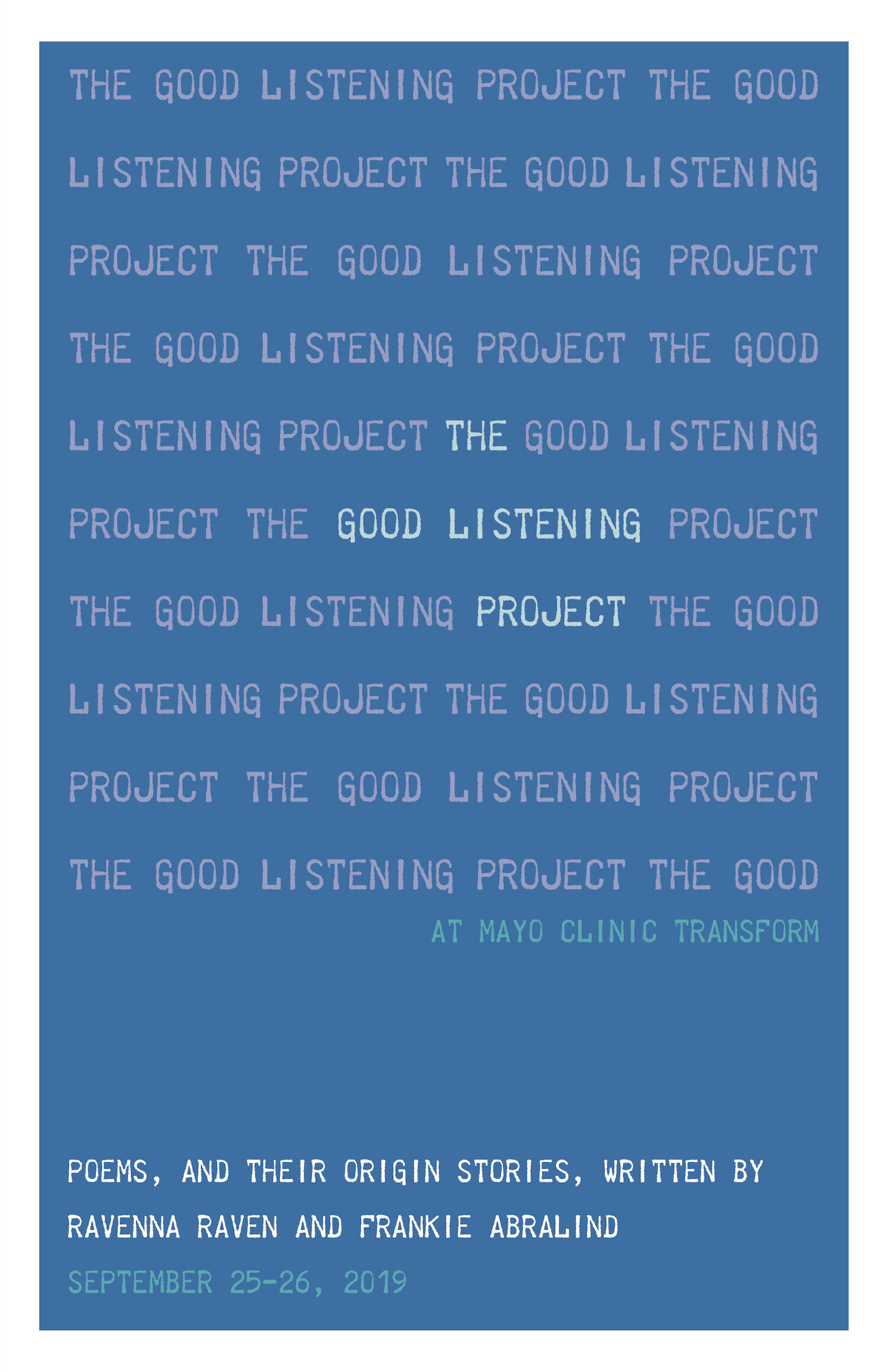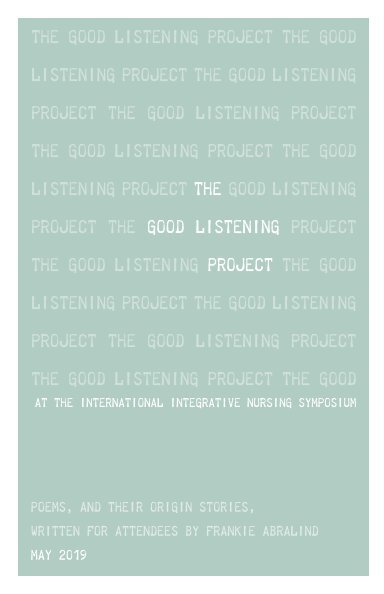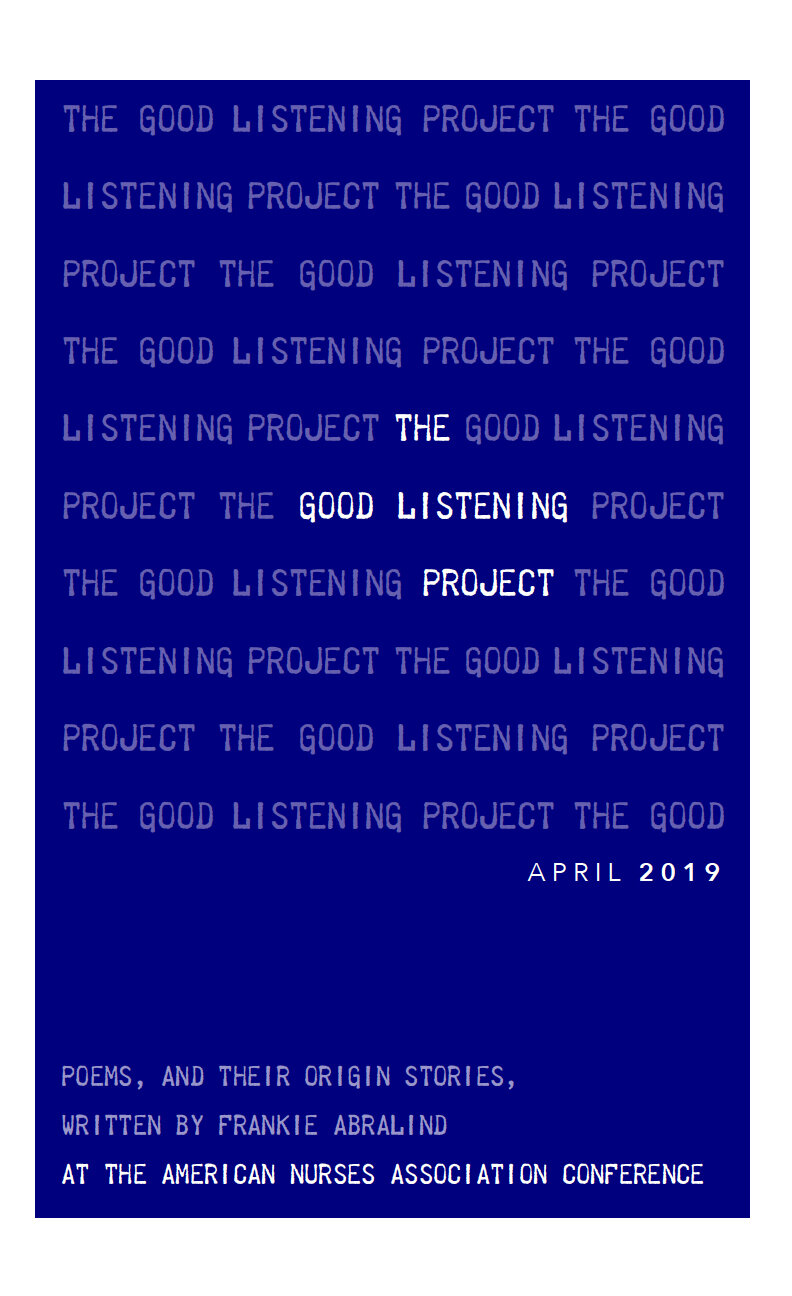Crab Shell, a poem
When we met, she was in her first year of residency and had just finished an 80-hour workweek. "It's been hard to lean into the excitement," she said.
Growing up in a rural town, adjusting to city life was tough. "I have strong connections to rural communities," she shared.
To cope with the demands of residency, she ran. "Running helps me reset. I value the brightness and warmth of the sun, but my favorite run is when it's raining, and the sun is out. It gives me back more than I give."
When asked why she chose medicine, she said her motivation changes over time, but she was drawn to the intersection of science and service. Aspiring to be a colorectal surgeon, she liked the physical labor aspect of surgery, a mindset rooted in her upbringing on a farm. "I would choose it again, but think hard about it," she admitted. "We grew corn and soybeans and raised pigs," she said. "As a kid, I was always dirty. People are surprised to discover I'm into fashion and art now, but where I come from is the most important part of my life."
On why she chose colorectal surgery, she explained that the colon is an intimate and essential part of the body that people often ignore due to self-consciousness. "It’s being human at our most vulnerable. Poo is taboo, but everyone does it. It’s natural," she said.
She wanted to help people feel comfortable and transform the shame around colon issues. "I want to talk about things that matter, the things people don't want to discuss. I want to help them feel okay talking about it."
Crab Shell
As children
we’d played in the mud like pigs.
We didn’t claim manners
but our revelry
and bathed in dank soil
between snort and squeal
to retreat from searching for ways
to reinvent ourselves.
Our impolite bodies belonged
to the Earth.
Now I run through sunbeams and raindrops.
Dragging my shoelaces through the mud
collecting in puddles on sidewalks.
Secretly hoping they ripple through the civility of our self-image.
And when my rubber soles
bounce off the concrete
I draw strength and energy from the alliance.
It’s assurance that
our bodies still belong
to the Earth.
We may try hard to be polite
but we still need to shit to live a healthy life.
After the rain
I inhale the mingled scent of
wet terra and pavement
to humanize my mindset.
I see nature in Us.
But to find us in the world...well
This house of flesh and bone we inhabit
is a crab shell.
Invincible in its shameless vulnerability.
When we are in it
without disguise
perhaps we can arrive
home.
This poemee wanted to leave a legacy of doing good in this world. Although at times she becomes discouraged about the inequalities in the world, she is determined to do her part by making sure everyone has access to quality healthcare.
This person radiated gratitude and hope. She shared that she discovered she was expecting a son just before receiving a lung cancer diagnosis at the age of 31. Despite the challenges, she expressed profound gratitude for living in a human body and reflected on her transformative journey of self-discovery.
She had an epiphany as a child — that love could heal the world. Now, as a seasoned physician, there’s still a part of her that believes in the power of love, but not with the same idealism she once held.
This person is a neurologist of Romanian descent, in practice in the U.S. for 19 years, who draws inspiration from writers in his heritage. In his writing and work, he seeks to create a safe harbor for humanness while navigating the labyrinths of medicine to reach the essence of the humanity of his patients – even if all they want is a diagnosis or cure.
This poemee wanted to share her experience as a surgical resident, offering insight into the traditions that define this unique culture: the relentless pressure to succeed, the deference to those in higher positions, and the often-cold interactions that accompany a field-wide drive for speed and efficiency.
This new physician was looking forward to starting her OB/GYN residency. Her original goal in undergraduate school was physician assistant studies. But a series of experiences led her to consider a different path: medical school.
“I was at a birth recently and thought: This is why they are so afraid of us. They can’t control this” She sat on her couch with a mug of coffee. She is a queer, femme, mother of two who has worked in reproductive health for over two decades, first in abortion care and now as a doula for all, including queer and non-binary families, through the pregnancy spectrum. She has personally experienced birth, miscarriage, hysterectomy and surgical menopause.
A teenage cancer survivor, this poemee shared how she learned from the younger children she witnessed undergoing the same treatment she was. “You just see a difference in the way a child approaches it,” she said. “They have the moment, they have the pain, they have the shot, and then they just go back to playing. I always took strength from the way little kids would handle it.”
Conversation with Kimako Desvignes DNP, RN, Associate Director of Oncology with almost 30 years of experience in medicine, was an emotional journey through a history of social injustice and racial discrimination—a reflection on ancestry at times through shared tears. Henrietta Lacks’ story had a powerful impact on us both.
“Sometimes I feel so helpless,” said this resident, reflecting on all of the challenges faced by the young patients and their families whom she served. Over the last several days, she has become increasingly overwhelmed by events in the news and has questioned her ability to make a difference in the world.
“It’s hard to watch the decline and sometimes hard to visit but it weighs on me not to,” she said. Her father had always been an elaborate storyteller and an alive, vibrant man with a big voice.
The Good Listening Project was honored to once again take part in the annual KNN conference in Minneapolis this year. Jenny closed the session by writing this harvest poem that captured the voices and sentiments shared.
After a history of crippling endometriosis, this woman had an arduous, ongoing struggle with her healthcare community for the right to have a hysterectomy. She was finally granted approval at the age of 29. “It had been like pulling teeth, but finally I felt free,” she told me.
Her childhood was infused with Hawaiian-Polynesian music and dance, taught to her father by his mother. Today, her life’s work is to connect the unbelievable discoveries of molecularly focused pre-clinical research directly to the patient experience of treatment.
She is a single mother born to a single mother and had to grow up fast. She is juggling a sticky work situation, her own anxiety and depression, and being away from home and her kids.
Instead of the usual Listener Poet format – listening to one person’s story and responding with a framing narrative and custom poem – I was invited to create a group poem for forty participants at the Arts in Healing luncheon, hosted by the Inova Health Foundation in partnership with the board.
What does it mean for people living with Sickle Cell Disease to be seen, heard, and understood? For this person, it meant finding – and using – her voice to advocate for herself and for others.
“I’ve experienced a lot of big losses,” she said. “I want to be a beacon of hope and light, keeping the flame lit for cancer prevention.”
Professionally, for this person, Henrietta Lacks’ story represents the need to critically examine our research infrastructure. “Private companies benefit from publicly-funded research without a requirement to give back to ensure the viability of future research.”
“The fact of my life is a miracle,” she told me. Living with multiple chronic illnesses, this patient spoke to me of her journey with alopecia. Of how, in witnessing her body transformed by the condition, she continues to move at once through grief and reclamation.
“I can’t see a future outside of our relationship,” she tells me, “but I also can’t see a future outside of residency.”
“I always believe, no matter what the doctor says, that I will be cured,” she says as her sister sits next to her.
“I wonder if these medical professionals, in caring for people who face such insurmountable odds, walk around all the time carrying this weight I’m hauling now.”
He had been trying to cope with the grief ever since and was on a quest for soul-searching and meaning-making.
She spoke about the ways this traumatic event shaped who she is today: a person with an “unshakeable peace” born of deep faith,
She wanted to help people feel comfortable and transform the shame around colon issues. "I want to talk about things that matter, the things people don't want to discuss.
